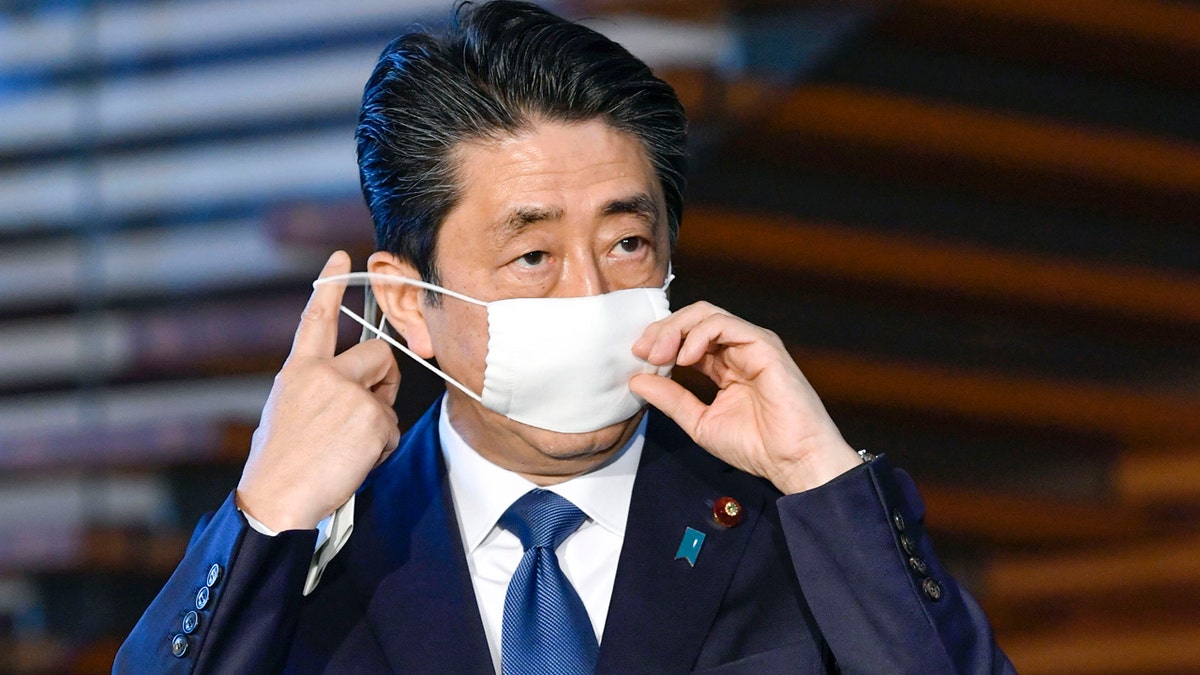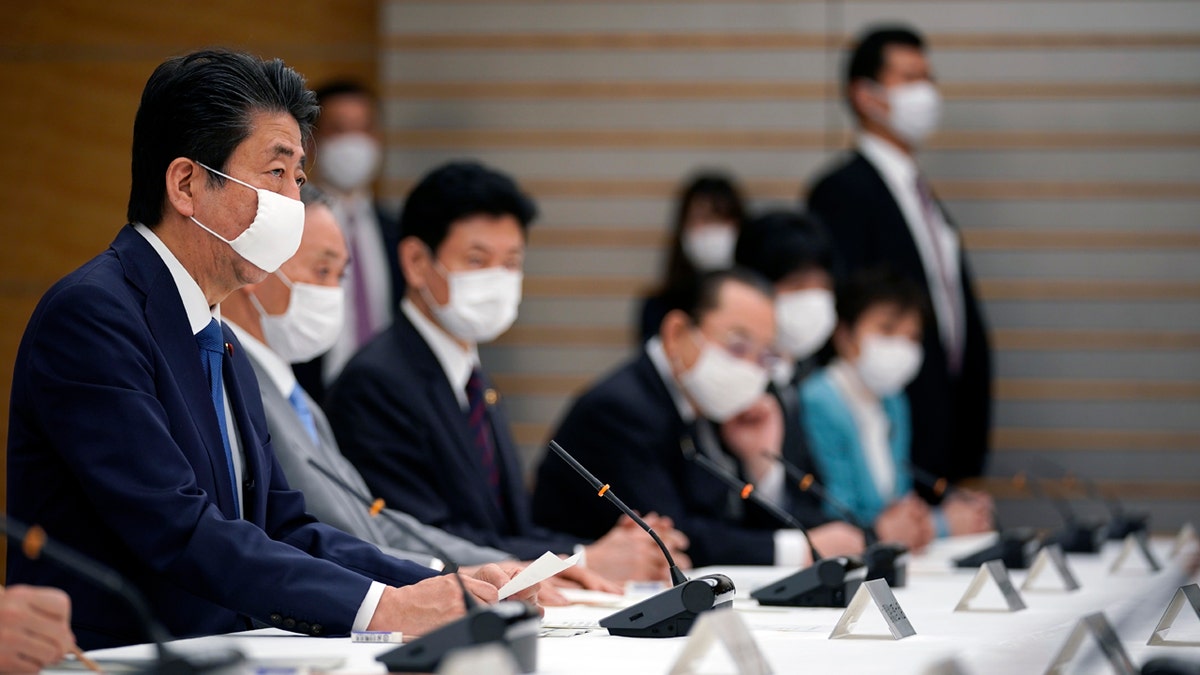Passengers disembark coronavirus cruise ship in Japan but blocked from immediate return to US
American passengers of the Diamond Princess received a letter from the embassy in Tokyo informing them that they will not be permitted back to the U.S. for an additional 14 days; Jonathan Serrie reports.
Get all the latest news on coronavirus and more delivered daily to your inbox. Sign up here.
A growing number of coronavirus cases in Japan has prompted Prime Minister Shinzo Abe to announce a state of emergency as soon as Tuesday in Tokyo and six other prefectures in an attempt to slow the outbreak.
Abe's announcement on Monday came as Tokyo reported 83 new cases of COVID-19.
“This state of emergency declaration is to ensure the medical care system stays intact and to ask for even more cooperation from the people to avoid contact with each other to reduce infection as much as possible," the Japanese prime minister said.
CORONAVIRUS MEASURE IN JAPAN OF 2 MASKS PER HOME TAKEN AS APRIL FOOL'S JOKE, MOCKED AS 'ABENOMASK'
Abe said experts on a government-commissioned task force urged him to prepare to declare a state of emergency, with the COVID-19 outbreak rapidly expanding in major cities including Tokyo, and hospitals and medical staff overburdened with patients.

Japanese Prime Minister Shinzo Abe said that he will declare a state of emergency for Tokyo and six other prefectures as early as Tuesday, April 7, to bolster measures to fight the coronavirus outbreak, but that there will be no hard lockdowns. (Yoshitaka Sugawara/Kyodo News via AP)
A growing number of cases in Tokyo have already left doctors and nurses in the city with a shortage of gear and staff, even though Japan only has a small number of cases compared to its neighbors, China and South Korea.
“We could empty out an entire ward and use it just for corona patients, but that means those patients (with other illnesses) will have to go elsewhere,” said a doctor specializing in infectious diseases at a major hospital in the greater Tokyo area told Reuters. “If we can’t do that, it will lead to the virus spreading all through the hospital and lead to a collapse of our medical system.”

Wearing protective masks to help reduce the spread of the coronavirus, commuters ride an escalator Monday, April 6, 2020, in Tokyo. (AP Photo/Jae C. Hong)
The prime minister said the state of emergency will cover Tokyo, Osaka, Fukuoka, and four other hard-hit prefectures, and will be in effect for about a month.
CLICK HERE FOR FULL CORONAVIRUS COVERAGE
Abe said he will hold a news conference on Tuesday to explain further details about the state of emergency.

Japanese Prime Minister Shinzo Abe, left, speaks during a meeting of the headquarters for measures against the coronavirus disease at the prime minister official residence in Tokyo, Japan, Monday, April 6, 2020. (Franck Robichon/Pool Photo via AP)
The measure is intended to reinforce social distancing between people to slow the spread of the outbreak, and to continue to keep social and economic activities to a minimum.
While there will be no hard lockdowns in Japan, authorities in those designated prefectures will able to take restrictive measures, according to the Japan Times.
WHY JAPAN APPEARS TO HAVE AVOIDED A MASS CORONAVIRUS OUTBREAK
Tokyo Gov. Yuriko Koike said the city will start transferring patients with no or slight symptoms from hospitals to hotels and other accommodations to make room for an influx of patients with severe symptoms.
The Japanese prime minister has faced criticism for his response to the pandemic. Some alleged the government manipulated numbers by limiting tests, or combined COVID-19 deaths with other pneumonia fatalities before the Summer Olympics were canceled. Abe denied that.

Commuters walk along a sidewalk Monday, April 6, 2020, in Tokyo. (AP Photo/Jae C. Hong)
Japan's strategy so far has been to focus on clusters and to trace infection routes rather than testing everyone.
In addition to the new measure so slow the spread of the virus, Abe also told reporters Monday that his government will launch a 108 trillion yen ($1 trillion) stimulus package to help counter the economic impact of the pandemic.
CLICK HERE FOR THE FOX NEWS APP
As of Monday, there are 3,654 COVID-19 cases reported and at least 85 deaths in Japan, according to Johns Hopkins University. Japan's health ministry said there were another 712 infections and 11 fatalities on a cruise ship that was quarantined in the port of Yokohama near Tokyo earlier this year.
The Associated Press contributed to this report.

